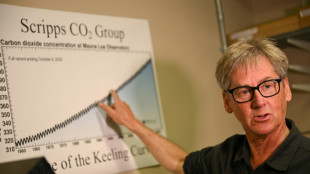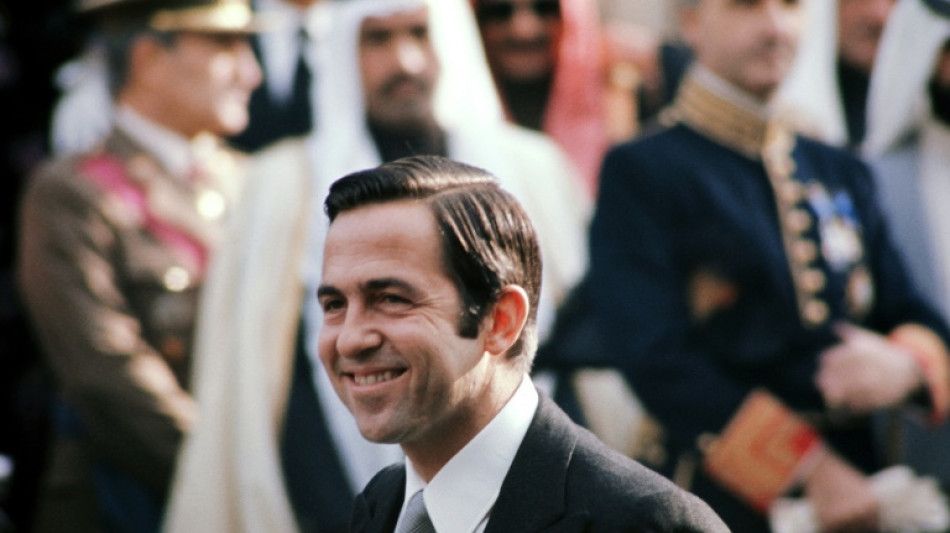
-
 A stadium and a jersey for Argentina's 'Captain' Francis
A stadium and a jersey for Argentina's 'Captain' Francis
-
New Trump task force vows to root out 'anti-Christian bias'
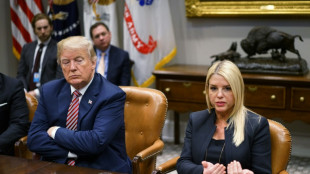
-
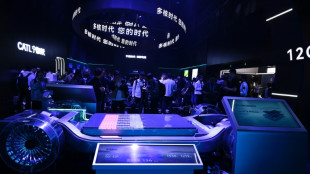 Auto Shanghai showcases new EV era despite tariff speedbumps
Auto Shanghai showcases new EV era despite tariff speedbumps
-
Trump's administration moves to scrap artificial food dyes
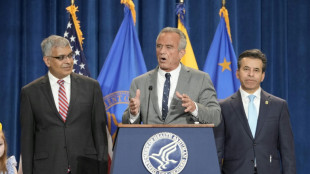
-
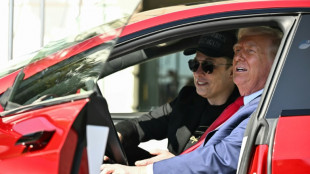 Musk to reduce White House role as Tesla profits plunge
Musk to reduce White House role as Tesla profits plunge
-
US official backs off promise to solve cause of autism by September
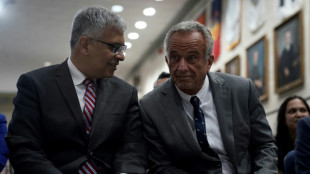
-
 Guardiola joy as Man City go third after dramatic win over Villa
Guardiola joy as Man City go third after dramatic win over Villa
-
Trump says has 'no intention' of firing Fed chief
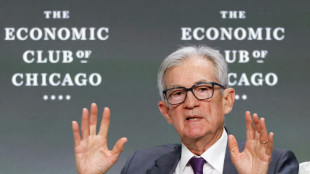
-
 Jury finds New York Times did not libel Sarah Palin
Jury finds New York Times did not libel Sarah Palin
-
UN appoints envoy to assess aid for Palestinians

-
 Celtics star Tatum 'doubtful' for game two against Magic
Celtics star Tatum 'doubtful' for game two against Magic
-
Former England star Flintoff reveals mental battle after car crash

-
 Defending champion Korda chases first win of season at Chevron Championship
Defending champion Korda chases first win of season at Chevron Championship
-
Olmo fires Liga leaders Barca past Mallorca

-
 Nunes strikes at the death as Man City sink Villa to boost top-five bid
Nunes strikes at the death as Man City sink Villa to boost top-five bid
-
Tesla says profits plunge 71%, warns of 'changing political sentiment'
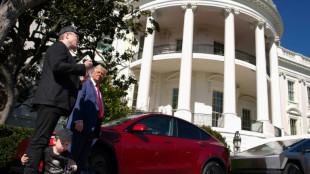
-
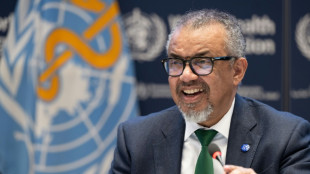 WHO announces 'significant' layoffs amid US funding cuts
WHO announces 'significant' layoffs amid US funding cuts
-
PSG draw with Nantes to stay unbeaten in Ligue 1

-
 Trump's administration moves to ban artificial food dyes
Trump's administration moves to ban artificial food dyes
-
Gunmen kill dozens of civilians in Kashmir tourist hotspot
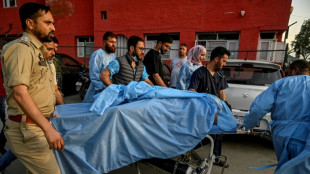
-
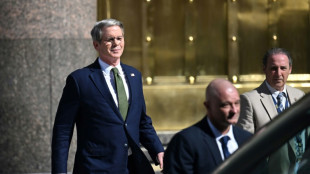 US Treasury chief expects China tariff impasse to de-escalate
US Treasury chief expects China tariff impasse to de-escalate
-
I.Coast opposition leader Thiam barred from presidential election
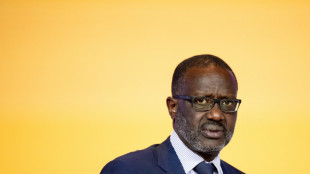
-
 Top US court leans toward parents in case on LGBTQ books in schools
Top US court leans toward parents in case on LGBTQ books in schools
-
At least 24 killed in Kashmir attack on tourists
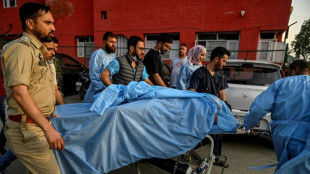
-
 Rahul powers Delhi to big win over Lucknow in IPL
Rahul powers Delhi to big win over Lucknow in IPL
-
Colombian cycling star 'Lucho' Herrera denies murder conspiracy

-
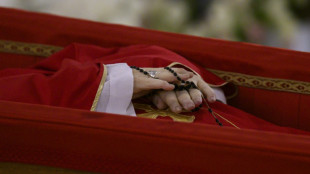 Trump, Zelensky to attend Pope Francis's funeral Saturday
Trump, Zelensky to attend Pope Francis's funeral Saturday
-
US State Department to cut positions, rights offices
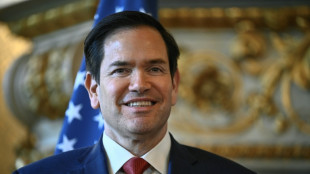
-
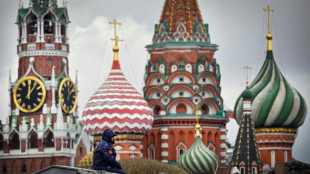 Ukraine ready for direct talks with Russia only after ceasefire: Zelensky
Ukraine ready for direct talks with Russia only after ceasefire: Zelensky
-
Myanmar Catholics mourn pope who remembered their plight
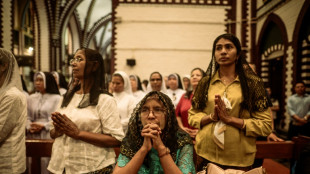
-
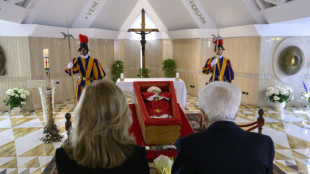 Pope's Vatican 'family' pay tearful respects
Pope's Vatican 'family' pay tearful respects
-
The world leaders set to attend Pope Francis's funeral
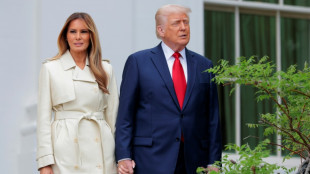
-
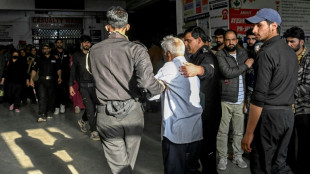 'Like a storm': Witnesses describe deadly Kashmir attack
'Like a storm': Witnesses describe deadly Kashmir attack
-
Volkswagen unveils its electric counter-offensive in China

-
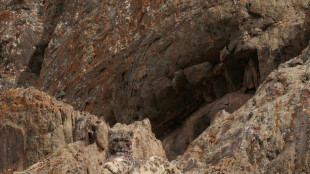 Landmark Nepal survey estimates nearly 400 elusive snow leopards
Landmark Nepal survey estimates nearly 400 elusive snow leopards
-
Napoleon letter auction recalls French pope detention
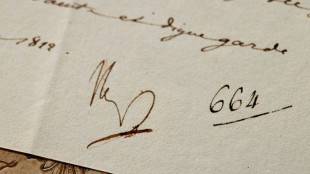
-
 Saka injury 'nothing serious' as Arteta weighs Arsenal options
Saka injury 'nothing serious' as Arteta weighs Arsenal options
-
Rubio to cut positions, rights offices at US State Department
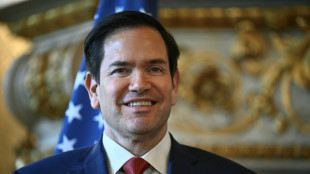
-
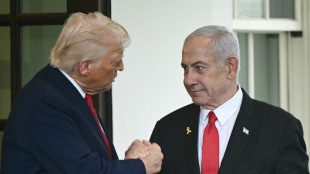 Trump says 'on the same side of every issue' with Netanyahu after call
Trump says 'on the same side of every issue' with Netanyahu after call
-
ECB's Lagarde hopes Trump won't fire US Fed chief Powell
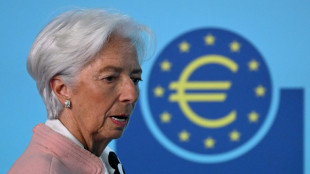
-
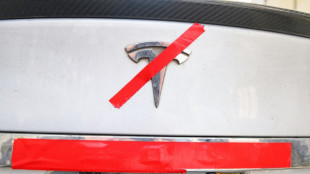 Gold hits record as Trump fuels Fed fears, Wall Street rebounds
Gold hits record as Trump fuels Fed fears, Wall Street rebounds
-
The world leaders set to attend Francis's funeral
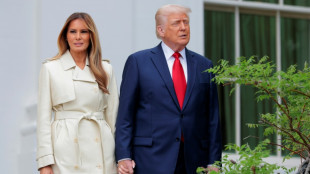
-
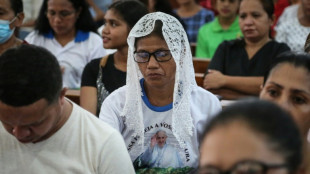 East Timor mourns Pope Francis months after emotional visit
East Timor mourns Pope Francis months after emotional visit
-
US envoy to visit Moscow as US pushes for ceasefire
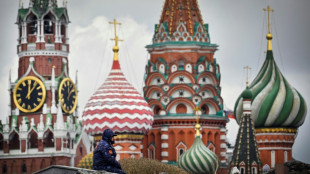
-
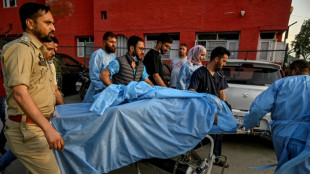 At least 24 killed in Kashmir attack on tourists: Indian police source
At least 24 killed in Kashmir attack on tourists: Indian police source
-
Philippine typhoon victims remember day Pope Francis brought hope
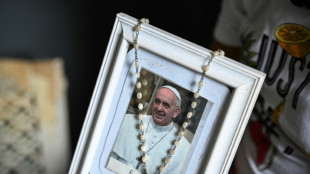
-
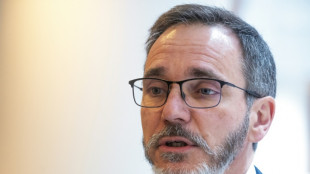 IMF slashes global growth outlook on impact of Trump tariffs
IMF slashes global growth outlook on impact of Trump tariffs
-
BASF exits Xinjiang ventures after Uyghur abuse reports
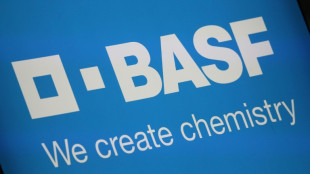
-
 Nordics, Lithuania plan joint purchase of combat vehicles
Nordics, Lithuania plan joint purchase of combat vehicles
-
Gold hits record, stocks diverge as Trump fuels Fed fears
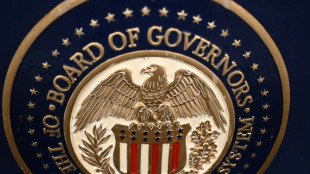

Greece's ex-king Constantine, end of a dynasty
Greece's former king Constantine II, who died on Tuesday aged 82, was the last member of a century-long dynasty in power when a brutal army dictatorship seized control of the country in 1967.
A descendant of Denmark's royal Gluecksburg family, Constantine ascended the throne in 1964 at the age of 23 during one of the most turbulent periods in modern Greek history.
The country was still bitterly divided 15 years after the Greek civil war, at the height of the Cold War and with anti-communist hysteria and fears of subversion rampant.
- Coup plots -
Most Greeks believe the young king, under the influence of his German-born mother Frederica, aggravated the country's political instability.
His critics argue he enabled the rise of the army dictatorship by clashing with the democratically elected prime minister Georgios Papandreou, encouraging his resignation in 1965.
Declassified US diplomatic cables say Constantine himself may have been mulling martial law in 1967.
They suggest he wanted to head off Papandreou's return to power, alongside his maverick son Andreas, the future firebrand socialist prime minister.
A 1967 State Department wire said Constantine's head of cabinet approached the local CIA station chief three months before the coup, to ask how Washington would react if "extreme measures" were taken ahead of elections in May.
The envoy told the then CIA station chief John Maury "for the present, the loyalty of the army could be relied upon to support a temporary dictatorship".
- 'Worst day of my life' -
In later years, the former king claimed he had done his utmost to avert the political crisis that led to the dictatorship.
He insisted that the putschists had "deceived" the Greek people by claiming to carry out the coup in his name.
Eight months after the colonels had seized power, Constantine organised a military counter-coup that failed.
"It was the worst day of my life," he said in a 2015 memoir released by To Vima weekly. "That day, I saw my first white hair."
Constantine fled to Rome with the royal family, and they moved to London in 1974.
He later said he had chosen not to pursue his counter-coup "because the risk of a general civil conflict was too great".
A senior putschist saw it differently. The ex-king had "plotted clumsily", he said.
But even after the dictatorship took hold, Constantine "seems to have been willing to return to Greece at practically any cost, including co-operation with the junta", historian Mogens Pelt wrote in a 2006 study of postwar Greece.
- Suing the state -
When democracy was restored in 1974, nearly 70 percent of Greeks voted for the abolition of the monarchy in a referendum, ending a dynasty begun by Constantine's Danish-born great-grandfather George I in 1863.
A long legal battle with the Greek state followed, with Constantine -- derisively nicknamed "Kokos" by anti-royalists -- determined to secure compensation for royal property and lands.
In 1991, he was permitted to remove 10 containers of items at the former royal estate of Tatoi near Athens, during the administration of prime minister Constantine Mitsotakis, father of the present premier.
Many of these items were later sold by auction house Christie's, the London-based ex-royals saying their ongoing storage and insurance costs were "impossible to cover".
The overall compensation case was finally settled in 2002 when the European Court of Human Rights ordered the Greek state to pay nearly 14 million euros to the former royal family.
- Rejected by the people -
Constantine was less than a year old when his family fled to Egypt to escape the invading Nazis, who occupied Greece until 1944. He was six when they returned to a devastated country.
As crown prince, he was part of a three-man sailing crew that won a gold medal in the 1960 Rome Olympics, Greece's first in nearly five decades.
A cousin of British monarch King Charles III, godfather to his heir Prince William and brother of Sofia, the mother of King Felipe VI of Spain, the ex-king was an honorary member of the International Olympic Committee from 1974.
Still styling himself "king", Constantine battled poor health in recent years.
He had returned to Greece in 2013, selling the 9,500-square-foot London mansion where his family had lived for four decades.
"I want nothing more than a quiet family life," he told reporters during a 1993 visit to Greece.
In a 2016 Skai TV interview, he said he had never voted in his life, and did not intend to.
"It's too late," he said.
In 2008, an opinion poll found fewer than 12 percent of Greeks favoured a return to a constitutional monarchy. More than 43 percent blamed him for the coming of the junta.
Constantine was married to Anne-Marie -- sister to the Queen of Denmark Margrethe II -- and they had five children.
M.Odermatt--BTB

